Voices in Montessori Podcast
Voices in Montessori podcast shares interviews with seasoned Montessori educators and leaders, as well as learning specialists, and other experts to inspire and support you. Our podcast is a resource for Montessori educators and leaders packed with actionable ideas to elevate and support your practice. Hear from Montessori elders about real-world classroom tools and school management strategies. How do I offer positive discipline in my Montessori classroom? How do I get the support that I need as a first year Montessori teacher? How do I change the culture of my Montessori school community? We will explore these questions and more on the Voices in Montessori podcast. Topics include supporting learning differences in the Montessori classroom, positive discipline strategies, the neuroscience of learning, creating school cultures of belonging, and Montessori for elders and dementia. Tune in and subscribe to deepen your Montessori practice and join a revolutionary community of Montessori educators and leaders who are shaping the future of education. View the show notes at https://greenspringcenter.org/podcast/ Join the conversation on our Facebook community at https://www.facebook.com/greenspringcenter Learn more when you follow us on Instagram at https://www.instagram.com/greenspringcenter/
Voices in Montessori podcast shares interviews with seasoned Montessori educators and leaders, as well as learning specialists, and other experts to inspire and support you. Our podcast is a resource for Montessori educators and leaders packed with actionable ideas to elevate and support your practice. Hear from Montessori elders about real-world classroom tools and school management strategies. How do I offer positive discipline in my Montessori classroom? How do I get the support that I need as a first year Montessori teacher? How do I change the culture of my Montessori school community? We will explore these questions and more on the Voices in Montessori podcast. Topics include supporting learning differences in the Montessori classroom, positive discipline strategies, the neuroscience of learning, creating school cultures of belonging, and Montessori for elders and dementia. Tune in and subscribe to deepen your Montessori practice and join a revolutionary community of Montessori educators and leaders who are shaping the future of education. View the show notes at https://greenspringcenter.org/podcast/ Join the conversation on our Facebook community at https://www.facebook.com/greenspringcenter Learn more when you follow us on Instagram at https://www.instagram.com/greenspringcenter/
Episodes
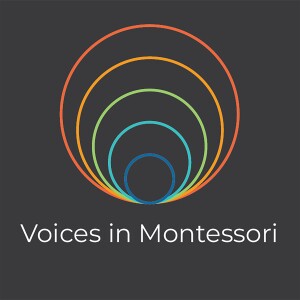
Tuesday Oct 17, 2023
Tuesday Oct 17, 2023
Dr. Debra Em Wilson joins the Voices in Montessori podcast to discuss Polyvagal Theory and how we can apply it to the work we do with our students. Debra is a teacher and the author of The Polyvagal Path to Joyful Learning: Transforming Classrooms One Nervous System at a Time. She explains the three main nervous system states - ventral vagal, sympathetic, and dorsal vagal - and how each state provides valuable information about learning readiness.
Dr. Wilson explains that dysregulation is caused by disconnection from regulating resources. So what are the regulating resources for the nervous system, and how do we teach ourselves and others to access those resources when needed? She provides a formula for safety, connection, and retuning the nervous system. Dr. Wilson explains how these skills can be utilized by teachers and taught to our students, resulting in more joy - both in and out of the classroom.

Tuesday Oct 10, 2023
Exploring the Essence of Montessori
Tuesday Oct 10, 2023
Tuesday Oct 10, 2023
Dr. Philip Snow Gang joins the podcast to revisit the essence of Dr. Montessori's work. In what ways was the discovery of the normalization process revelatory? How was the concept of cosmic education formed, and what impact did it have on her life's work? In what ways has her vision expanded over time?
Dr. Gang poses the question: What is the legacy of Maria Montessori? He highlights the scientific theories and hypotheses that evolved after Dr. Montessori's passing that build upon the great insights she had into the development of humanity.
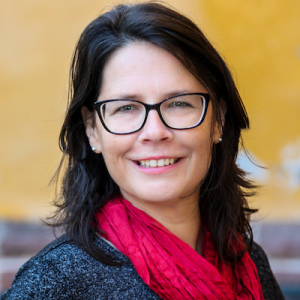
Tuesday Sep 26, 2023
Forced Independence vs Independence as an Invitation
Tuesday Sep 26, 2023
Tuesday Sep 26, 2023
Letty Rising joins the podcast to discuss fostering independence in children – and specifically, the difference between inviting a child to be independent as opposed to forcing it on them. She describes the negative repercussions of mandating independence rather than reframing these moments as opportunities. Letty describes what this looks like at each stage of development – physical independence in the first plane, intellectual independence in the second plane, and social/emotional independence in the third plane. Letty talks about how to collaborate with children to invite them toward independence in a way that respects their needs and development. She also discusses how we can use this approach with other adults!
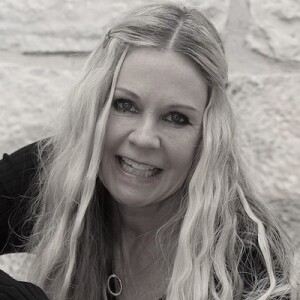
Tuesday Sep 19, 2023
Overcoming the Three Most Common Pitfalls of School Leadership
Tuesday Sep 19, 2023
Tuesday Sep 19, 2023
A Montessori leader is invested in growing, developing, and reaching her full potential. While some leaders correspond with others on a transactional level, Montessori leaders transform themselves and others by inviting trust, managing effectively, building teams, and empowering others.
Shawn Edwards joins the podcast to discuss what it means to lead a school with transformational intention. She shares commom pitfalls she has seen that prevent leaders from cultivating the school cultures they are looking for. Then she shares key strategies for overcoming these challenges, so that all members of the school community feel capable, valuable, and powerful.

Tuesday Sep 12, 2023
The Real Deal: Understanding and Meeting the Need of Toddlers and Their Parents
Tuesday Sep 12, 2023
Tuesday Sep 12, 2023
Simone Davies joins the podcast to discuss the realities Toddler Guides face after training when they are working with “real” toddlers in the classroom. What does concentration in toddlers actually look like? How do we know whether to observe or give a presentation? How do we meet toddlers’ needs rather than merely redirect their behavior? How do we use the prepared environment to help us set limits? Simone answers these questions and more in a jam-packed conversation with useful tools and techniques for Toddler Guides.

Friday Aug 25, 2023
Democracy, Naturally! Creating Structures for Classroom Governance
Friday Aug 25, 2023
Friday Aug 25, 2023
John Fowler joins the Voices in Montessori podcast to discuss classroom governance at the Elementary level. In the context of Cosmic Education, John shares a framework for classroom governance that involves students creating their own shared agreements for the classroom, taking on leadership roles (such as president, vice president, and secretary/treasurer), and running their own weekly classroom meetings, during which important discussions are held and collective decisions are made. John makes the case that experiencing democratic governance as a healthy and vital part of Cosmic Education that serves students in both individual and collective ways.

Tuesday Aug 15, 2023
Creating Space & Structures for Calm and Peace in an Age of Overwhelm
Tuesday Aug 15, 2023
Tuesday Aug 15, 2023
Rachel Shatananda joins us to talk about supporting children with their spiritual development, particularly by creating space and structures for calm and peace in an age of overwhelm.
What does it look like for us to create space for ourselves as adults?
What does it look like to create space for the child?
What are the tools you use in a Children’s House classroom to support children in developing the skills and tools of mindfulness?
How can we be the Guides that Dr. Montessori envisioned us to be?
Rachel discusses these big questions by describing her own practices and strategies she has used successfully in her own classrooms.
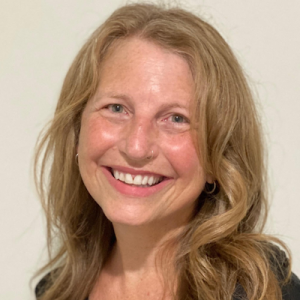
Tuesday Aug 08, 2023
Character Development for the Inspired Educator
Tuesday Aug 08, 2023
Tuesday Aug 08, 2023
Tammy Oesting, world-renowned Montessori trainer, consultant, and public speaker, joins us to talk about the preparation of the adult - specifically our own character development. First, Tammy describes the characteristics of an inspired educator. (To inspire others, we ourselves must be inspired!) Tammy also talks about prosocial emotions and their role in this conversation. And finally, she answers the question, "How do we, as adult learners, cultivate these characteristics?" Join Tammy for this lively and inspiring conversation!

Tuesday Jul 25, 2023
Tuesday Jul 25, 2023
Mike Waski joins us to talk about moving between concrete and abstract exploration in Mathematics with Upper Elementary and Adolescent students. This is not a linear progression, but a dance back and forth between both types of exploration.
Mike explains that it's no particular skill that is the most important for students moving from Upper Elementary to the Adolescent Community, but that students are mathematical thinkers. This comes from students being given the time to explore mathematical concepts with hands-on materials. Upper El Guides must resist the temptation to move students too quickly into abstraction and give the gift of time for students to make foundational discoveries. Mike gives lots of specific examples about how to inspire students who resist using materials. Mike describes how the Montessori materials can still be used with Adolescents, although they are beyond their sensitive period for using manipulatives, to support their understanding.

Tuesday Jul 18, 2023
Connecting Young Children to the Natural World
Tuesday Jul 18, 2023
Tuesday Jul 18, 2023
Kathryn Ross, Montessori educator, trainer, and master gardener, joins us to discuss the importance of connecting young children to the natural world. Today, as we observe the deterioration of our natural environment, this connection is more important than ever. Humans learn to love what they are most closely connected to, and that love can form the basis for necessary care - of our rivers and trees, the air we breathe, and the animals we share this planet with. We need our children to love our planet, as they are the ones who will be most impacted by the choices humans make.
But what does this look like in daily practice as a Montessorian?
What are ways that a Montessori educator might prepare themselves in order to most effectively connect children with the natural world?
How might a Montessori educator extend the prepared environment outside the classroom walls?
What are specific ways that nature studies, specifically gardening studies, be incorporated into each of the Montessori curriculum areas?
How are the Montessori biology materials best used? Are they enough?
How might a busy teacher, or one who doesn’t know much about gardening, find help?
Kathryn Ross considers these questions and offers specific ideas about connecting young children in a Montessori setting to the natural world.
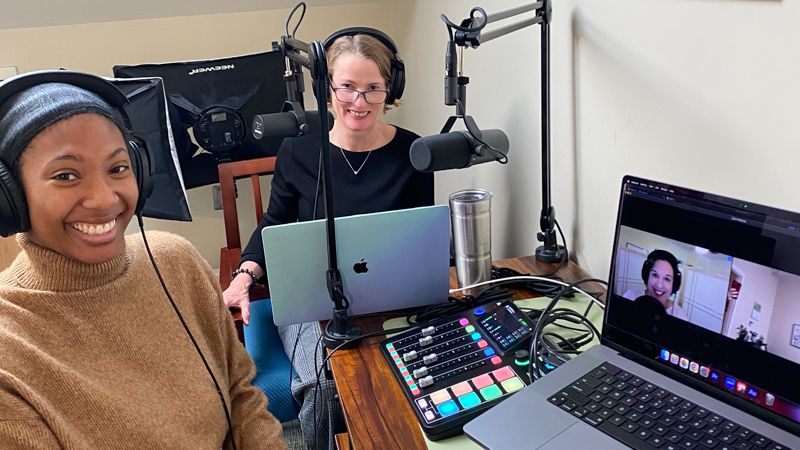
About Greenspring Center for Lifelong Learning
The mission of the Greenspring Center for Lifelong Learning is elevating and supporting the emerging generation of Montessori educators, leaders, and schools.
View the show notes at https://greenspringcenter.org/podcast/
Join the conversation on our Facebook community at https://www.facebook.com/greenspringcenter
Learn more when you follow us on Instagram at https://www.instagram.com/greenspringcenter/




